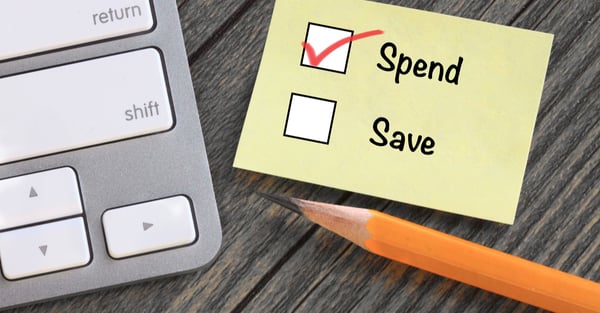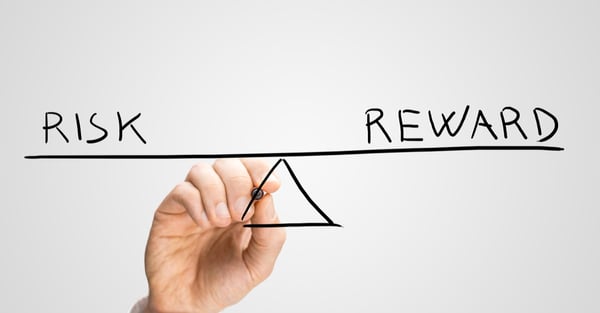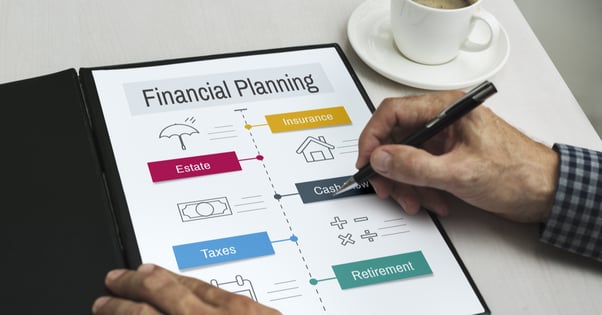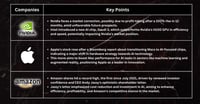It's an undeniable fact that the economy is on the verge of collapse, with recession a likely possibility. Everyone knows and feels the impact of the coronavirus on every aspect of life, from daily living to business operations.
Your personal finance is likely taking a major hit too. This is the best time to re-adjust your plans to protect yourself from bigger losses.
There's a growing fear that COVID-19 may cause a recession, causing panic over market conditions. With businesses temporarily closed and unemployment claims on the rise, this could become a reality.
Are you one of those who’ve lost an income source due to workplace closure? Is your savings slowly depleting because of the lockdown? Are your investments going through a crisis too?
Difficult as it may seem, there are still ways to navigate through these tough times and soften the blow of the pandemic on your pocket and your life.
Primary goal: Work out a financial plan

Don't panic!
This is probably the single most useful advice in a crisis because you need to think wisely now more than ever. You need to do things right and being irrational is not the way to achieve this.
What you need to do is to sit down and work out a crisis financial plan.
When dealing with bills, loans, and other liabilities
Prioritise your bills
Determine which ones need to be paid immediately and those that can be dealt with later. Check with service providers for any assistance or whether they allow consumers to defer payments for a month or so.
Doing so will help you stay on top of your dues while ensuring you have cash on hand.
Temporarily deactivate auto-debit payments
How can you prioritise bills if some are set to get paid automatically? Again, you need to remain flexible in dealing with your expenditures and to have accessible funds.
When dealing with the loss of income
Find ways to keep spending low
Without an income in the foreseeable future, avoid spending on discretionary and non-essential items. The lockdown could be extended and it could be a while before businesses reopen.
In this situation, you need to shore up your savings or emergency fund to survive the next few weeks or months.
What little extra you have, you should funnel towards your savings account.
Check how credit card providers can help
Many of them are introducing programmes to help credit cardholders in such a trying time. You may be eligible for small nonpayment.
You should also look into opening another credit card for added flexibility, but only if your financial circumstances allow it.
When dealing with debts
Taking out a loan may be one of your options to stay financially able during a crisis, but avoid it whenever possible.
But if there's no other way, make sure to:
- Not borrow more than you need or can afford to repay
- Consider the interest rates and fees
- Weigh all your options for borrowing money
Most importantly, think about whether you're creating more financial problems by acquiring more debts.
There are several other ways to effectively manage financial stress and spare yourself from the physical, emotional and mental impact. With a bit of effort on your part, you can survive these tough economic times.
Secondary goal: Stay in control of your finances

During these uncertain times, you could make poor financial decisions. Don't pull the plug on your investments or savings just yet.
Keep your savings where it currently is
That's right. A coronavirus outbreak is no excuse to withdraw all your money and stuff it under the mattress. Leave it in a bank or online institution where it is insured. Regardless of what happens to your bank, your savings are safe.
Imagine withdrawing it and your house burned down?
Organise your debts
Just like prioritising your bills, you also need to organise your debts and make sure you don't incur penalties due to nonpayment.
What can you do?
- Get in touch and negotiate with lenders and loan servicers
- Consult with credit and housing counsellors for options and possible solutions
- Negotiate with debt collectors and ask for a repayment plan that is suitable to the times
The goal is to not hide from your creditors but determine what can be done with your debts given your current financial situation.
Bolster cash flow
Make sure you have cash on hand for some emergency and necessary spending. If you keep discretionary spending to a minimum or none at all, you'll definitely achieve this.
To further maintain a positive cash flow:
- Create a budget and stick to it
- Track spending and receivables (if there are still any)
- If you have to spend money, do it wisely
A cash flow statement would help you keep track of all of your financial activities. If you don't have any yet, then time to make one.
Stick to a budget
As previously mentioned, you must set a budget to financially survive the current crisis. Create a month's budget and stick with it.
Depending on the outcome, make adjustments to ensure you continue to protect your finances without starving yourself.
Tertiary goal: Remain steadfast with your investments

True, the stock market is taking a beating due to the coronavirus pandemic. But true investors remain steadfast. COVID-19 is not the first epidemic that left a deep impact on the market, after all.
You just need to power through and not let your fears overcome your senses.
You also need to invest safely in the midst of this crisis.
It's important to prioritise your emergency fund before you invest anything. Liquidity is key.
Ignore your losses
The value of your pot is likely to have decreased. Whether it plummeted too low or not, don't sell your investments in a panic. You could lock in losses and miss out on a possible recovery.
Experts suggest to hold off selling equities, even with a possible global recession. This is because they believe it will be short-lived and you can easily bounce back.
Don't withdraw your pension just yet
Unless absolutely necessary, leave it invested for longer. You get to save more and earn extra income when the market recovers from the crisis.
Aim for asset preservation
This will ensure you still have assets left when all this is over. You can then work to grow them again rather than start from scratch.
Don't deviate from your current investing process
Switching to a different process is not recommended during tough times. You're likely to act based on emotions instead of being objective about what's going on in the market.
Your investment strategy should evolve. But don't make changes during a crisis.
Keep these tips in mind, and you'll be able to invest slowly but deliberately.
Stay financially sound
By adjusting your financial plan, you can survive the current crisis without more debts than income.
Don't have a plan yet?
Time to make one while stuck at home.
How else can you stay financially sound in times of crisis? Through a recession-proof vehicle like Forex trading, of course! Start trading with Fullerton Markets today by opening an account with us:
You might be interested in: How to Prep Yourself Financially in Times of Crisis














